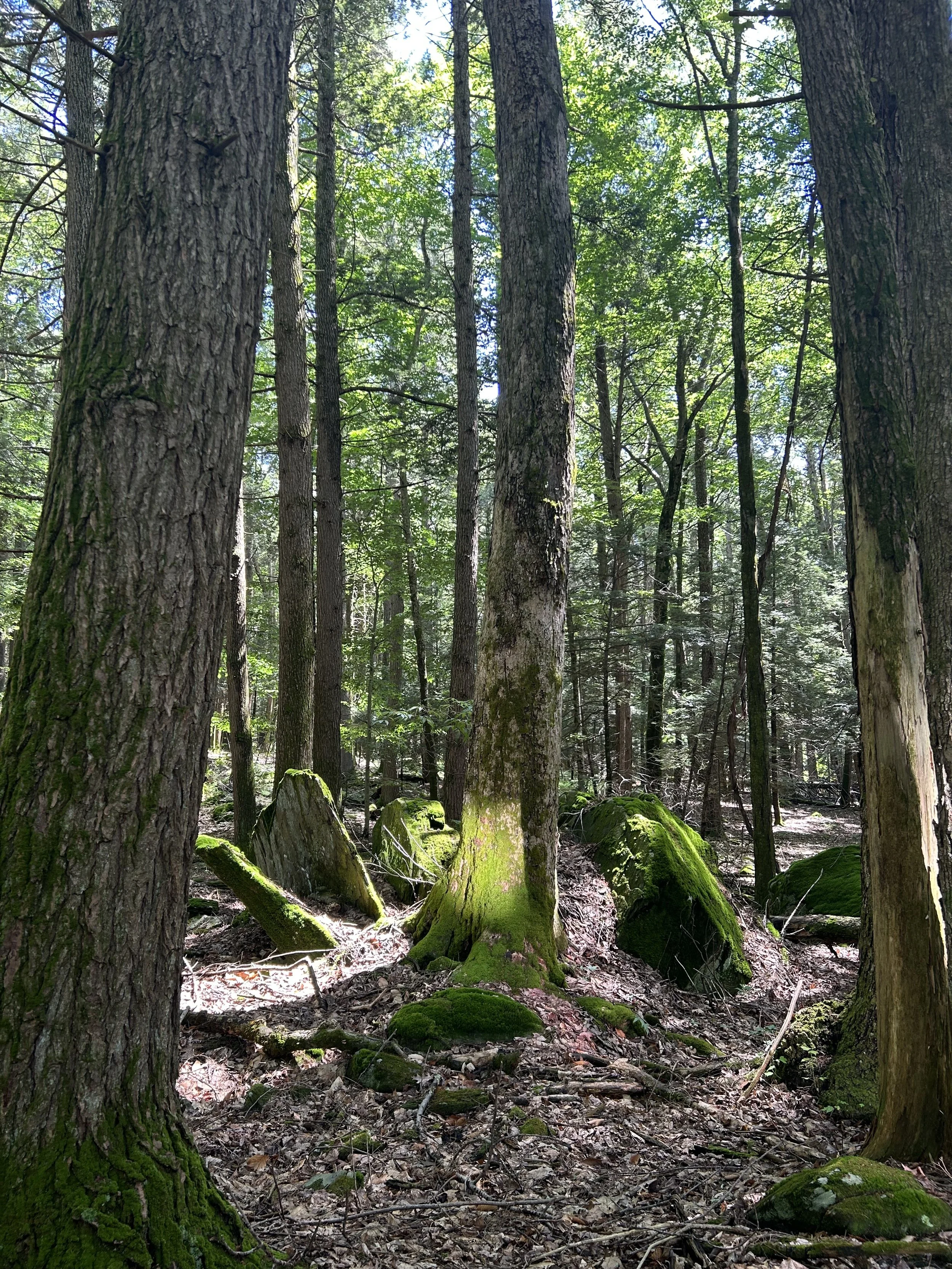
FAQ
-
What is a doula?
A doula is a non-medical caregiver who offers emotional, physical, and practical support during life’s major transitions. As an end-of-life doula, I walk alongside the dying and their loved ones—offering guidance, comfort, and presence before, during, and after death. Doulas do not replace hospice care—we complement it, helping families feel supported, empowered, and less alone.
-
Why Devotee to the Trees?
The name is rooted in my devotion to honoring the natural cycles of Life / Death / Life. It is also rooted in my devotion to the Great Wild Mother.
Long ago, there was a deep devotion to the trees. They were revered for their wisdom — for their ability to die and return to life again. They were honored for all that they gave: shelter, nourishment, medicine, beauty. Even in death, they were not seen as lifeless. Dead stumps in the forest are vital players in the ecosystem, offering refuge, feeding the soil, and sustaining new life.
The trees are my teachers of Life and Death — and of the thresholds in between. They show me how to hold both Life and Death at once, and to meet the in-between with reverence.
-
What is vigil?
Dying is an inward process while also a communal experience. Bedside vigil takes place when a person is actively dying. It is a time for devotional presence. Loved ones may build an altar, sing, pray, meditate, or share stories, and we assist in creating a safe, sacred space. This may last hours, days or more.
-
What is a home funeral?
A home funeral is a family-led, community-supported way of caring for the body of a loved one at home after death. It allows time for rituals, goodbyes, and honoring the transition in a familiar, intimate setting—often including washing, dressing, vigil, and ceremony.
-
What is after-death care?
Gentle, sacred support following death—honoring the body, guiding rituals, and holding space for loved ones to grieve and connect with the transition.
-
What is earth-conscious guidance for body disposition?
Earth-conscious body disposition is a way of returning to the earth with care and reverence. It honors the body as part of the natural cycle—choosing methods like green burial or human composting that allow us to give back to the soil, nourish the land, and leave a lighter footprint. It’s a final act of reciprocity with the earth that has held us all our lives.
-
Can you provide care if my loved one is on Hospice?
Yes, I work alongside hospice teams to provide complementary care that focuses on comfort, dignity, and emotional support.
-
What are some benefits of a home funeral?
The National Home Funeral Alliance (NHFA) emphasizes the importance of home funerals for several key reasons rooted in empowerment, community, and healing:
Reclaiming Death as a Natural, Family-Centered Process
Home funerals return the care of the deceased to families and communities rather than outsourcing it solely to funeral professionals and institutions. This helps demystify death and makes it a visible, shared human experience.Empowerment and Choice
By choosing a home funeral, families take active roles in caring for their loved one’s body and holding rituals that reflect their values and beliefs. This restores agency and can make the process more meaningful and personalized.Healing and Grief Integration
Being present with the body at home and participating in care rituals can deepen connection, provide comfort, and facilitate healthier grieving. It helps family and friends feel less isolated in their loss.Cost Savings and Accessibility
Home funerals often reduce or eliminate many costs associated with traditional funerals and embalming, making dignified end-of-life care accessible to more people regardless of financial means.Environmental Considerations
Home funerals often align with natural burial practices, supporting more environmentally sustainable death care that reduces chemical use, transportation, and resource consumption.Community Building
Home funerals foster community involvement and support networks, bringing people together around the experience of death, which strengthens social bonds. -
What are NYS laws in regards to funerals?
In New York State, while families can be deeply involved in after-death care, state law requires that certain tasks be overseen by a licensed funeral director. This includes:
- Filing the death certificate within 72 hours of death
- Obtaining necessary permits for burial or cremation
- Supervising the transportation of the body